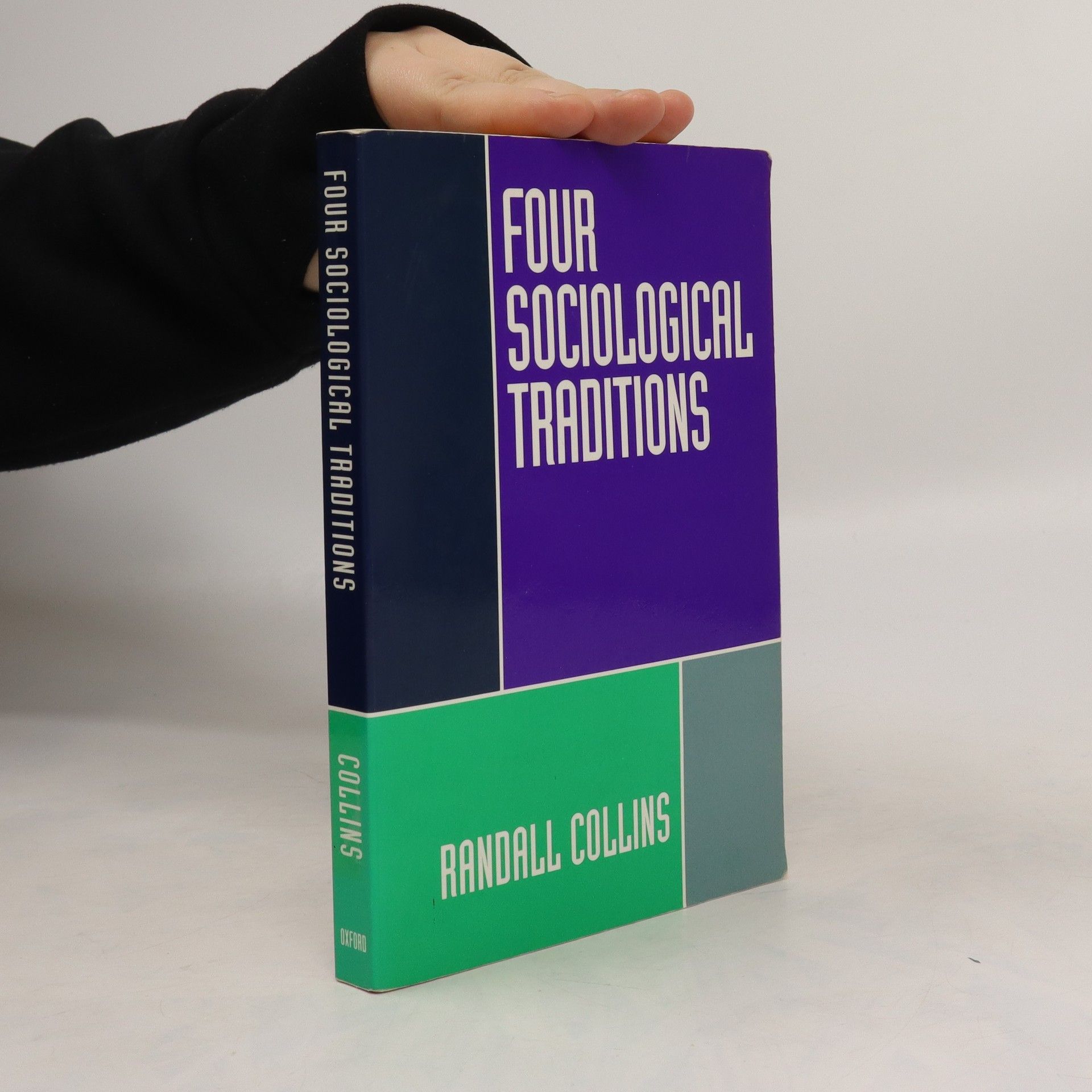Zerfallserscheinungen der Demokratie
| Drei führende Denker analysieren die Erosion der sozialen Grundlagen der Demokratie
Randall Collins is an influential American sociologist and theorist, focusing on the macro-historical sociology of political and economic change, micro-sociology of face-to-face interaction, and the sociology of intellectuals and social conflict. His work deeply explores how societies are created and destroyed through human emotional behaviors. Considered a leading non-Marxist conflict theorist, his academic writings have been translated into numerous languages. Collins has significantly contributed to the understanding of social phenomena through his extensive research and publications.







| Drei führende Denker analysieren die Erosion der sozialen Grundlagen der Demokratie
Craig Calhoun, Dilip Gaonkar, and Charles Taylor argue that democracies have embraced individual freedom at the expense of equality and solidarity, economic growth at the expense of democracy. Rebuilding local communities and large-scale institutions is now crucial, with attention to the public good beyond private advantage or ingroup loyalty.
What determines how long conflict lasts and how much damage it does? Inequality and hostility are not enough to explain when and where violence breaks out. Collins shows what makes some protests more violent than others and why some revolutions are swift and non-violent tipping-points while others devolve into lengthy civil wars.
Exploring the nature of charisma, Randall Collins examines its role in generating influence and power through historical figures such as Jesus, Cleopatra, and Churchill. By analyzing how charisma shaped their leadership and legacy, he provides insights into its significance in society. The book offers a compelling look at the dynamics of charisma and its impact on both individuals and broader historical movements.
Midair is a true account of one of the most remarkable tales of survival in the history of aviation - a midair collision at 30,000 feet by two bomb-laden B-52s over a category 5 super typhoon above the South China Sea during the outset of the Vietnam War - and the subsequent story of what happened to the surviving pilot when he bailed out in the middle of the typhoon.
Trust Based Observations teaches observers to build trusting relationships with teachers as they engage in frequent observations and reflective conversations with them. Using the manageable observation form and data driven goal setting, the result is teachers embrace risk-taking and take growth steps necessary for significant teaching improvement.
While in-depth cultural histories have been devoted to such classic horror monsters as the vampire, the zombie and Frankenstein's tragic creature, the cinematic werewolf has long been considered little more than the 'beast within': a psychoanalytic analogue for the bestial side of man. This book, the first scholarly study of the werewolf in cinema, redresses the balance by exploring over one hundred years of werewolf films - from The Werewolf (1913) to WolfCop (2014) via The Wolf Man (1941) and An American Werewolf in London (1981) - to reveal the cultural significance of she-wolves and wolf-men as evolving metaphors for the cultural fears and anxieties of their times. In doing so, it illustrates how we can begin to understand one of our oldest mythical monsters as a rich and diverse cultural metaphor.
Nadcházející desetiletí přinesou překvapivé otřesy a obrovské výzvy. Některé budou vypadat nově, některé docela staře. Mnohé z nich budou doprovázeny nebývalými politickými dilematy s obtížným rozhodováním. V příštích desetiletích se také naskytnou příležitosti k tomu, aby se věci dělaly jinak, než jak to činily předchozí generace. Pětice autorů v této knize na základě svých sociologických znalostí světových dějin zkoumá, jaké asi tyto výzvy budou, a diskutuje o nich.
Das ökonomische System des Kapitalismus wird kollabieren, weil negative Konjunkturzyklen und politische Krisen zusammentreffen und Wachstum an Grenzen stößt. Umweltkrisen werden den Kapitalismus massiv unter Druck setzen, ebenso wie globale Machtkämpfe und der Kampf um Ressourcen. Die Mittelklassen werden ihre Arbeit an IT-Services verlieren und nicht mehr so konsumieren können wie heute. Eine wichtige Frage wird sein, ob eine internationale politische Steuerung den Marktliberalismus wird beeinflussen können. Fünf herausragende Sozialforscher diskutieren in diesem Buch die Optionen wirtschaftlicher und sozialer Entwicklung in den nächsten 30 Jahren. Historische Systemumbrüche und gegenwärtige Machtverhältnisse im Blick, entwerfen sie fünf Zukunftsszenarien für das 21. Jahrhundert und führen ihre Ergebnisse in einer Synthese zusammen. Inhaltsverzeichnis Inhalt Die nächste große Wende 7 Gemeinsame Einleitung Die strukturelle Krise oder Warum der Kapitalismus sich nicht mehr rentieren könnte 17 Immanuel Wallerstein Das Ende der Mittelschichtarbeit: Keine weiteren Auswege 49 Randall Collins Das Ende ist vielleicht nah aber für wen? 89 Michael Mann Was war der Kommunismus? 123 Georgi Derluguian Was den Kapitalismus heute bedroht 163 Craig Calhoun Ein Weckruf an die Sozialwissenschaften 203 Gemeinsamer Schluss
Der amerikanische Soziologe Randall Collins untersucht die realen Welten der menschlichen Zwietracht – von der häuslichen Gewalt über Mobbing und gewalttätigen Sportarten bis hin zu bewaffneten Konflikten. Er erklärt, warum sich Gewalt typischerweise gegen Schwächere richtet und warum »Vorwärtspanik« ihren Ausbruch begünstigt. Er zeigt, warum sie als ritualisierte Zurschaustellung, als klandestiner Terrorakt oder Mord inszeniert wird und, warum nur wenige dazu fähig sind, Gewalt tatsächlich auszuüben. Collins legt präzise dar, warum Gewalt nur ausgelöst werden kann, wenn die emotionalen Barrieren fallen, die gewalttätiges Handeln verhindern. Und er skizziert, wie man der Gewalt in Zukunft entgegentreten kann.